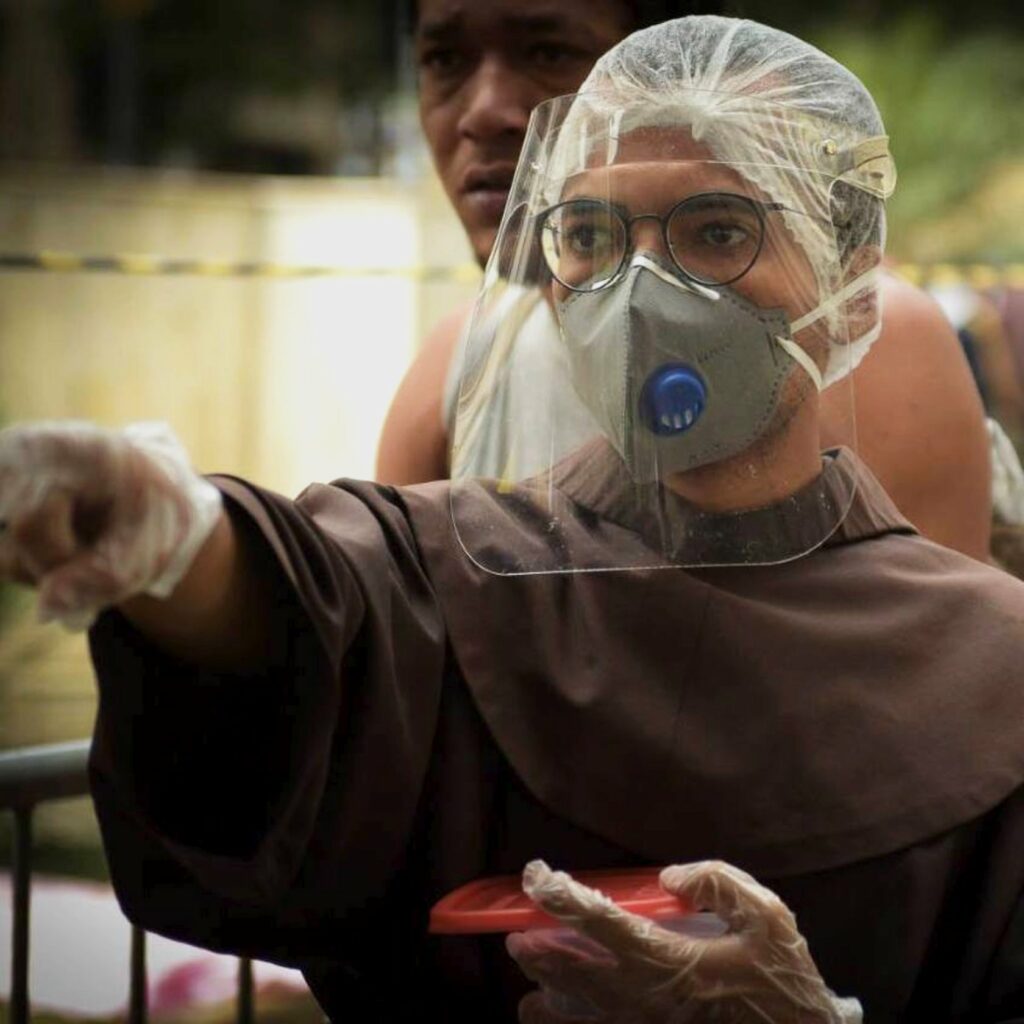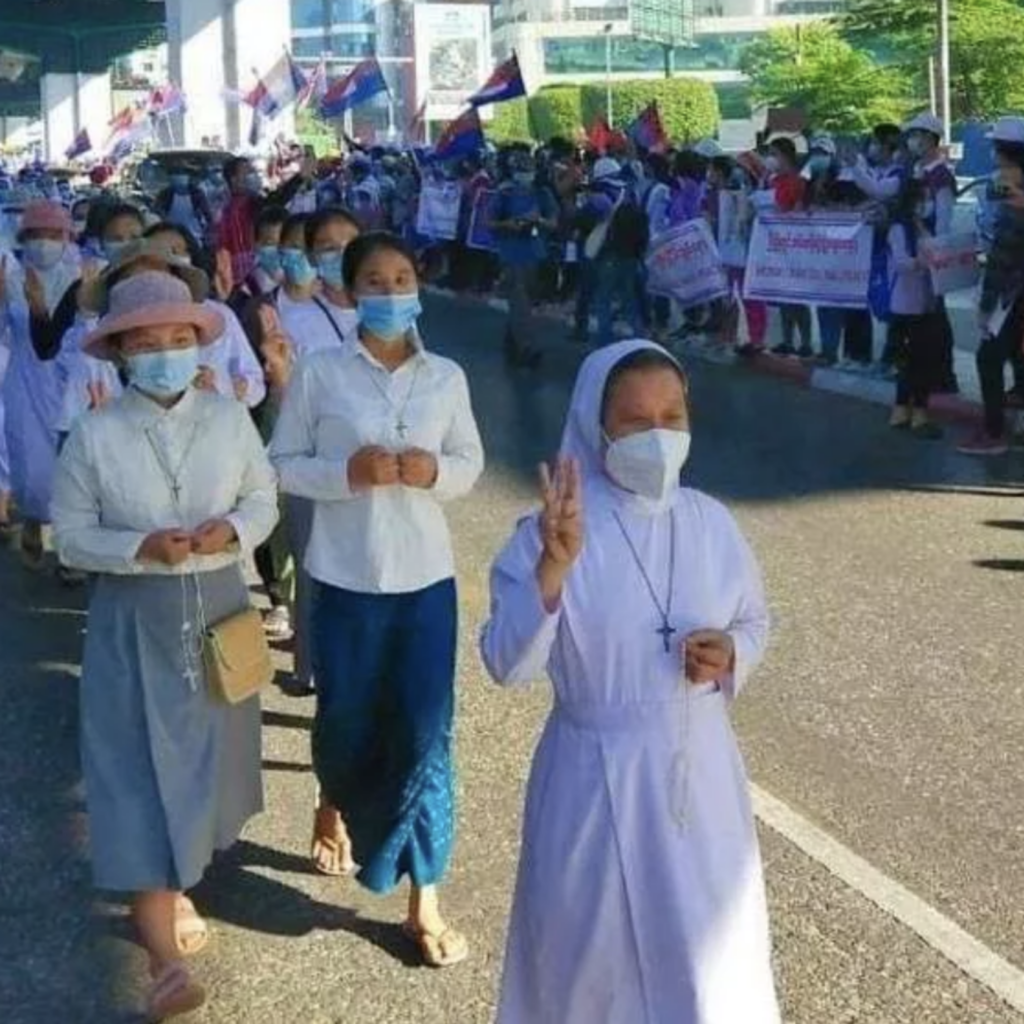The Human Rights Council will hold its 48th regular session between from 13 September to 8 October in a mostly online format. Despite the current Covid-19 restriction, FI is working closely with its grassroots partners to make sure their concerns are raised. You can find all the statements to the Council we delivered or co-sponsored below.
• • •
Item 10: Oral update by the High Commissioner – Philippines (7 October)
Despite the attention paid by the Human Rights Council to the situation in the Philippines, there has been no substantial positive change on the ground. In a joint statement, we denounced the widespread and daily State violence against the Filipino people. Noting that domestic mechanisms have failed to show meaningful progress toward achieving justice for the many victims of the so-called ‘war on drugs’ we reiterated our call on the Council to establish a Commission of Inquiry to start a long-overdue investigation.
Item 10: Interactive Dialogue on the High Commissioner’s report – the Democratic Republic of the Congo (5 October 10)
Three years after the DRC’s Revised Mining Code entered into force, the implementation of this legislation meant to regulate a sector that has historically fueled human rights violations in the country is still lacking. Local communities still do not benefit from mining revenues and the specialized bodies meant to manage local development funds have not been set up. Together with the Dominicans for Justice and Peace, we urged on the government to take the necessary steps to fully implement the revised code and called on the Council to take on this matter.
Items 3 & 5: Interactive Dialogue with the Special Rapporteur on the rights of indigenous peoples – Guatemala (29 September)
In Guatemala, the government still does not have a policy and enough services to manage the effects of the pandemic on the most vulnerable people, particularly indigenous people. We raised our concern over the exemptions from Covid-19 restrictions granted to extractive and agro-industries, despite their negative impacts on indigenous peoples. We echoed the Special Rapporteur’s assertion that recovery measures should not focus solely on the economic crisis but also seek to address pre-existing forms of discrimination and asked him to expand on how consultations with indigenous peoples can be carried out and respected in the context of Covid-19 recovery.
• Full statement (English and Spanish)
Item 4: Human rights situations that require the Council’s attention – Indonesia (27 September)
In a joint statement, we again raised the human rights situation in Indonesia, including West Papua, where there has been a continued deterioration of civil and political rights, as well as of the protection of internally displaced people. In particularly, we expressed our concern about the use of treason charges against political activists. We also urged the government to allow international and national humanitarian access to ensure that the rights of IDPs in the central highlands are respected, protected, and fulfilled.
Item 4: Human rights situations that require the Council’s attention – Guatemala (27 September
The political and economic instability in Guatemala, combined with weakening of the rule of law, is extremely worrying. In a joint statement, Franciscans International denounced the 551 attacks against human rights defenders, organizations and communities, which occurred in a broader context of legislative restrictions imposed on civil society by the government. We called on the Council to urge Guatemala to implement a comprehensive Public Protection Policy and guarantee the independence and impartiality of judges and magistrates.
• Full statement (English and Spanish)
Item 4: Human rights situations that require the Council’s attention– Climate Change (24 September)
Noting the gloomy picture of the state of climate action and cooperation in the recent report by the Intergovernmental Panel on Climate Change, together with partners we called on the Council to take a leading role on this action and act now to protect the rights of young people, children, and communities at risk across the world by establishing a new UN Special Rapporteur on human rights and climate change without further delay.
Item 3: Interactive Dialogue with the Special Rapporteur on toxics and human rights – Brazil (21 September)
Franciscans International expressed its concerns about the flexibilization of environmental licensing that is envisaged in many COVID-19 recovery plans, including in Brazil where a proposed law would affect indigenous and traditional lands. We also raised the disasters in Mariana and Brumadinho as examples of how environmental impact assessments based on independent scientific evidence are key for the determination of damages and harm, and thus for reparations.
• Full statement (English and Portuguese)
Item 3: Interactive Dialogue with the Special Rapporteur on water and sanitation (15 September)
During this interactive dialogue, we raised several issues shared by Franciscans, including the negative impacts of logging activities in the Solomon Islands. We also expressed concern that the new Congress in El Salvador, instead of approving constitutional amendments from the previous legislator to recognize the right to water, is instead proposing a new text that does not acknowledge its public character. Finally, we warned of attempts in Guatemala to legalize the monopolization, dispossession, and diversion of rivers by private companies.
• Full statement (English and Spanish)
Item 2: Oral update by the High Commissioner for Human Rights – Cameroon (14 September)
Since 2017, Cameroon has been engulfed by a largely underreported crisis dividing its Francophone and Anglophone regions. Numerous attacks on the civilian population have been reported, including abductions, arson, and the use of systematic violence through torture, rape, and sexual assault. At the Human Rights Council, we called on the Government of Cameroon to declare a ceasefire as soon as possible and ensure that the rights of all Cameroonians are respected and protected, regardless of their language, cultural identity, or political affiliation.
Item 2: Oral update by the High Commissioner for Human Rights – Right to a healthy environment / Climate Change (14 September)
In a joint statement by the Geneva Interfaith Forum on Climate Change, Environment and Human Rights, we called on the Council to move forward on two key processes in the fight against climate change by establishing a mandate for a Special Rapporteur on this issue and by recognizing the human right to a safe, clean, healthy and sustainable environment.
Item 2: Oral update by the High Commissioner for Human Rights – Climate Change (14 September)
Together with civil society partners, we called attention to the findings of the most recent report by the Intergovernmental Panel on Climate Change, confirming the worsening of irreversible impacts of climate change and their negative consequences on human rights. We empathized that, considering these threats, the Council can no longer justify just exchanging views among its members and observers, and should move to establish a mandate for a Special Rapporteur on human rights and climate change.
Item 2: Oral update by the High Commissioner for Human Rights – Right to a healthy environment (14 September)
In a joint statement, we urged the Council to meet the threats posed by pollution, climate change and the loss of biodiversity head on, and to recognize the human right to a safe, clean, healthy, and sustainable environment during the current session. This call echoes an appeal by over 1,100 civil society and indigenous peoples’ organizations.






